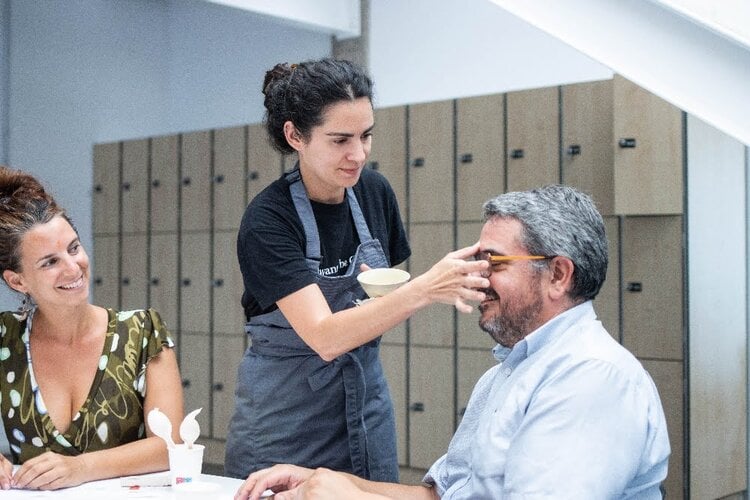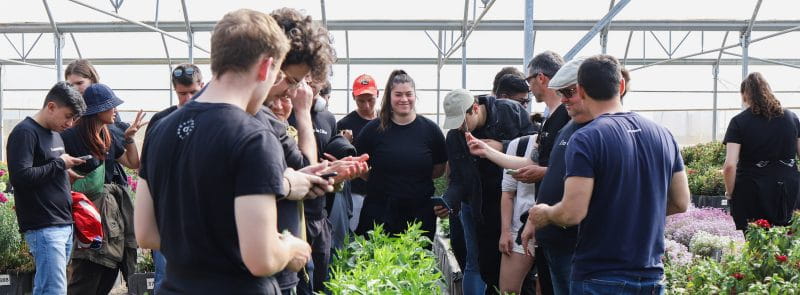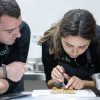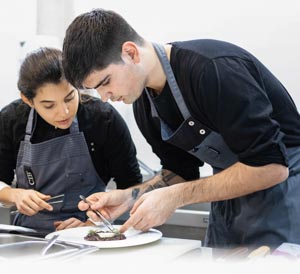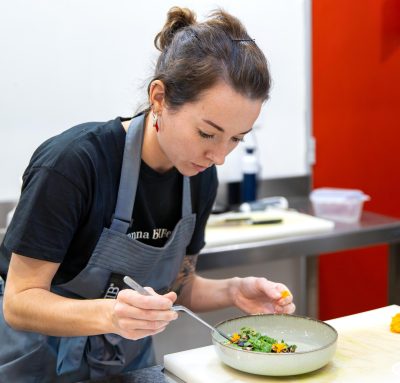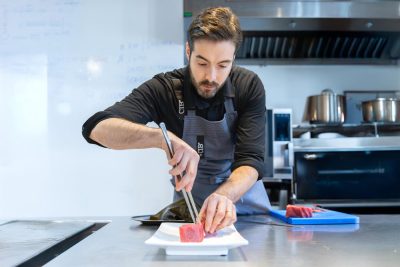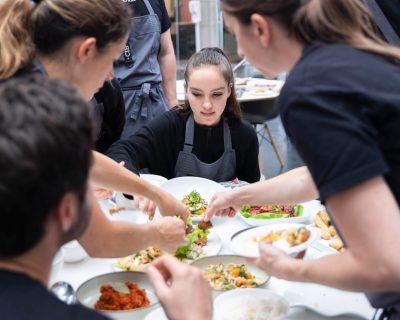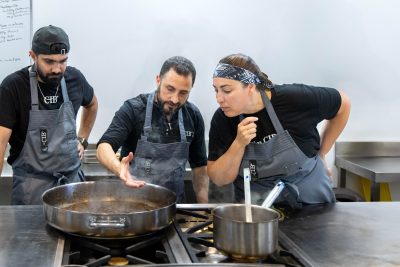When I am asked this question, which happens often, I always refer to the Kano Model Analysis for products. Because, and I don’t mean to offend anyone by this, but being a chef also means being a product, just like anyone else in the job market.
Being a chef also means being a product
The Kano Model tells us that products have three levels of appreciation. The basic level is what you expect the product to have, which is obviously included and if it is not, you would be upset and think it was some kind of joke. In a car, for example, you expect it to at least have wheels, an engine, a steering wheel and seats. We call this set of elements, basics.
If we apply this to chefs, the basics are that they know how to cook, of course. But just as no one is going to buy a car only for the “basics”, no one is going to hire a chef only for the basics, unless that’s exactly what you need, simply someone who can cook, regardless of the quality.
Then there is another level of characteristics that Kano calls features. These are the things that you compare with others, normally in a table in order to compare data between one product and another. If we use the same example, a car might be able to reach a certain speed, it might have a specific engine power, so many airbags, and so on. These are comparable data.
When we think of a chef’s features, we can talk about their particular skills, the speed at which they work, or how clean and tidy they are, for example. This is where we enter into a competition between one chef and another. There are many occasions on which a specific technique or skill is required to tackle one job or another.
But Kano also says that there is a third level of features that he calls delights, which are those things that surprise us until we say “wow”, that leave us open-mouthed and that pique our curiosity, admiration, and even our desire. It’s that button on a car that activates its wings and makes it fly.
Delight drives the market, innovation and the latest trends. The bad thing about all this is that these delights end up being features, which inevitably end up becoming basics. There was a time when ABS, airbags and power steering were delights for everyone. Nowadays, they elements are, without a doubt, firmly situated in the first level of basics and no longer do, or should, surprise anyone.

A chef’s delights
And what exactly are a chef’s delights? Well, it is not necessarily that they know how to cook well, that they have a greater handle on culinary techniques, or that they are faster than others. Think of someone you admire, preferably a chef, and think about why you admire them. What makes you think of them as special?
Well, it might be that they know how to communicate, how to lead, how to attract, because they have a solid and transcendent discourse, because they add value to what they do and how they do it. These are the delights of a professional chef. This is what is valued in a 21st century chef.
They know how to communicate, how to lead, how to attract, because they have a solid and transcendent discourse, because they add value to what they do and how they do it. That is the virtue of a professional chef. That is what is valued in a 21st century chef.
The sad thing is that cooking schools tend to only tick the first level boxes. They teach you how to cook, of course. I guess any cooking school teaches you how to cook properly, how to be a good employee in the kitchen. Not many schools reach the second level and are able to provide their students with the features that make them more competitive, cleaner, faster. But how many schools are able to invest in enhancing their students’ cognitive skills, in training them to write speeches, in efficient and targeted language development, confidence-based leadership and teamwork?
This is why the CIB stands out, precisely because a large proportion of a student’s classes are based on empowering leadership and social and professional attitudes. Another large part has to do with developing skills for managing people, oneself and even a business, precicely what you need to be a successful chef today and in the future.
It will become increasingly obvious that nowadays, the ability to innovate by exercising your creativity holds immense value. The world is changing at breakneck speed and only those who lead the change, or are able to adapt to it, will survive. In other words, they possess those characteristics that Kano defines as delights. They are chefs who love innovation and thus they become the market’s driving force.

